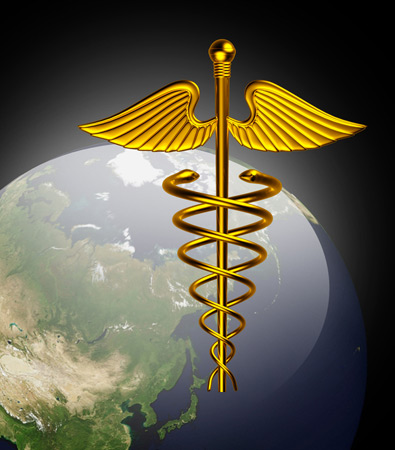Health and Medical: Health Care System
Like most European countries, Germany has a well-developed public health system coordinated by a national health ministry as well as a high density of medical practitioners. The health ministry is responsible for defining goals and strategy for better health; it monitors the performance of health care providers and regulates as necessary. Medical care at a high level is widely available. Germany spends more per capita on health care than any other nation except the United States and Switzerland, and it is also among the highest-ranked countries in terms of distribution of health across the population.
Some hospitals (krankenhaus) and pharmacies (apotheke) are open 24 hours a day. Drugstores (drogerie) in Germany do not sell medical supplies, but rather cosmetic items such as lotions and detergents. Pharmacists remain open from 9 a.m. to 6 p.m. Monday through Friday, and 9 a.m. to noon on Saturday. All pharmacists can provide the addresses of services available outside normal hours.
Germany has strict customs regulations, and you are generally not allowed to receive prescription medication by mail without special permission.
Insurance and Payment
Visitors from EU countries or from Iceland, Liechtenstein, Norway, and Switzerland should obtain a European Health Insurance Card (EHIC) before traveling to Germany, as to any other EU country. The card is available free of charge from the traveler’s national health authority. Presenting the card at the time services are needed allows the traveler to be received on the same basis as a citizen of Germany.
Travelers from non-EU countries must take out traveler’s insurance to avail themselves of German state health programs.
Most doctors, hospitals, and pharmacies do not accept credit cards. For consultations with a doctor and for medications, payment is normally required upfront. It is important to save all receipts for reimbursement. Hospital visits, on the other hand, may or may not be paid for directly by your insurance policy; be sure you know before you travel.
Spa Treatments
A happy footnote about medical care in Germany: therapeutic treatment (and recreation) is available at more than 350 officially recognized medical spas, many featuring natural hot springs, and treatment is often covered by the traveler's medical insurance (or directly by employers, for business travelers). German employees will receive 3 to 4 weeks of spa treatment for many illnesses and ailments reported by a physician. A full list of such facilities can be obtained from the German National Tourist Office, or from:
Deutscher Heilbäderverband e.V. (German Spas Association)
Reinhardtstraße 46
10117 Berlin
Tel: [49] (30) 24 63 692-0
Locating a Doctor
Embassies and consulates generally maintain lists of physicians, dentists, and medical facilities for the benefit of travelers. Also, the International Association for Medical Assistance to Travelers (IAMAT) maintains a database of fully licensed, English-speaking doctors around the world. Office visits are available to IAMAT members at fixed rates advertised on the website, www.iamat.org.
Sources: US Department of State; World Health Organization; European Commission
World Trade Press accepts no liability for statements on this page. Consult your healthcare provider for more information.
Copyright © 1993—2025 World Trade Press. All rights reserved.

 Germany
Germany 
